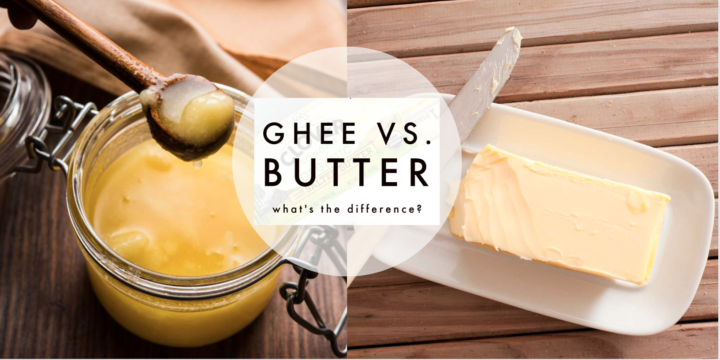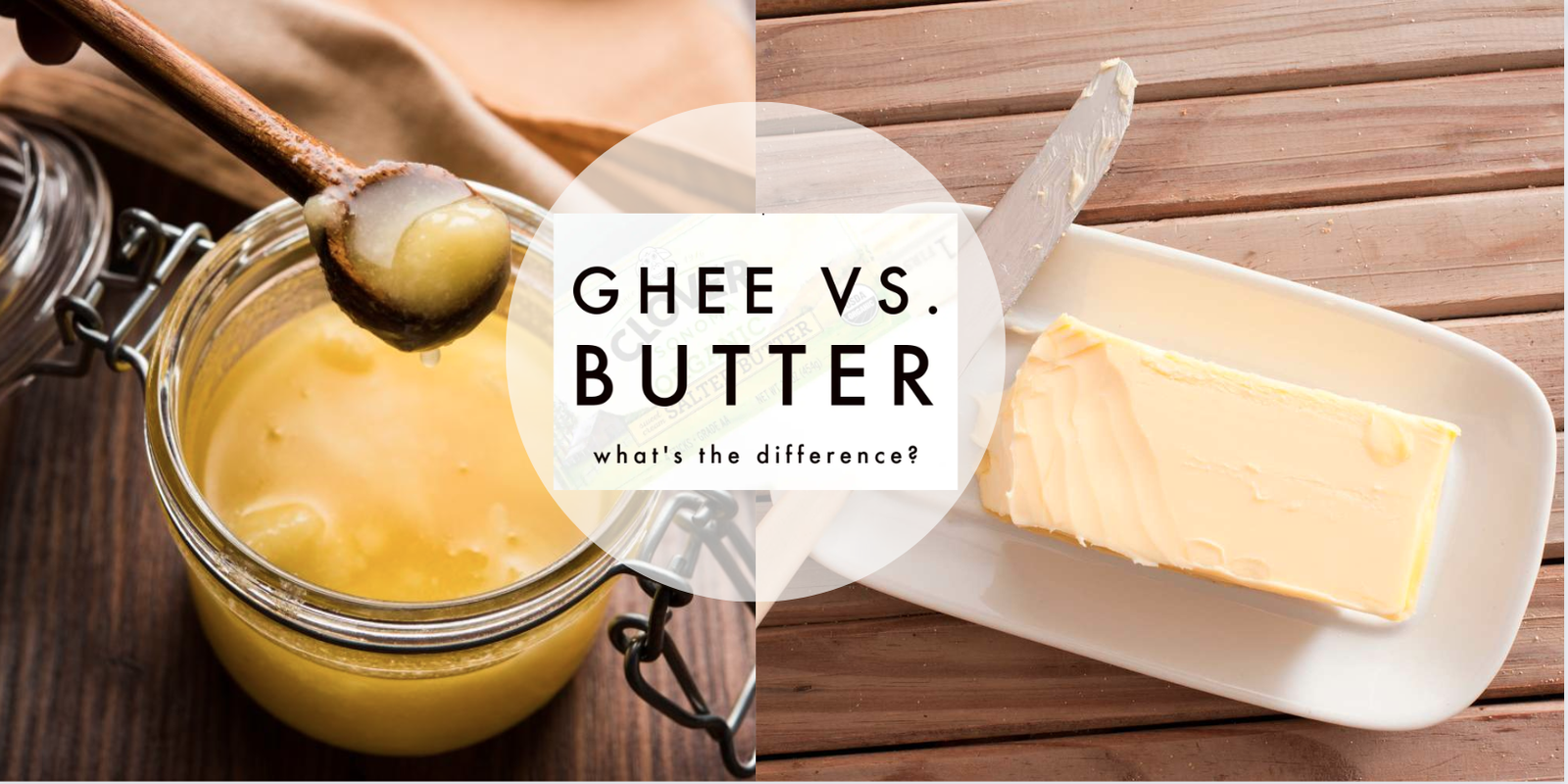These two dairy ingredients, ghee, and butter, have different tastes and textures. Let’s look at how they’re used and understand the differences between ghee and butter.
What is Ghee?
- Ghee is a special kind of butter used a lot in Indian cooking. To make it, we heat butter to remove water and milk parts, leaving only the butterfat. This gives us a golden, yummy liquid with a strong nutty taste. Plus, it works better at high heat than regular butter. People like using it in Ayurvedic practices for its unique qualities.
What is Butter?
- Butter is a common ingredient in many Western kitchens. It’s made from churning cream or milk and has a smooth and creamy texture. The taste can be mild or tangy, depending on the type of butter. People often use butter for baking, cooking, and spreading on things like bread.
Advantages of Ghee
- High Smoke Point: One of the key advantages of ghee is its high smoke point, which makes it ideal for high-temperature cooking methods like sautéing and frying. This characteristic prevents the formation of harmful free radicals, making it a healthier option for certain cooking applications.
- Lactose-Free: The clarification process in ghee removes milk solids, including lactose and casein, making it a suitable option for individuals who are lactose intolerant or sensitive to dairy proteins.
- Long Shelf Life: Ghee has a longer shelf life compared to butter due to the removal of water content and milk solids. Its stability makes it resistant to rancidity, allowing it to be stored at room temperature without refrigeration.
- Rich Nutritional Profile: Ghee contains essential fatty acids, fat-soluble vitamins (A, E, and D), and butyric acid, which is believed to have anti-inflammatory properties. When consumed in moderation, ghee can contribute to a well-rounded and nutritious diet.
Also Read: Surprising Benefits of Beer: More Than Just a Refreshing Drink
Advantages of Butter
- Flavor Diversity: Butter boasts a wide range of flavors, from the mild and sweet notes of unsalted butter to the tangy richness of cultured butter. This diversity allows chefs to enhance the taste of both sweet and savory dishes.
- Creamy Texture: Butter’s creamy texture adds a luxurious mouthfeel to dishes, making it a popular choice for baking, pastry, and as a finishing touch for sauces.
- Natural Source of Nutrients: Butter is a natural source of fat-soluble vitamins, such as vitamin A, which is essential for vision, immune function, and skin health. It also contains conjugated linoleic acid (CLA), a type of fatty acid associated with potential health benefits.
 Ghee vs Butter Figuring Out Which is Better for Our Health
Ghee vs Butter Figuring Out Which is Better for Our HealthDisadvantages of Ghee
- Caloric Density: Ghee is calorie-dense, and excessive consumption can contribute to an increased calorie intake. Individuals watching their calorie consumption should be mindful of portion sizes.
- Saturated Fat Content: While ghee contains saturated fats, recent research suggests that not all saturated fats have the same impact on health. However, moderation is key, and individuals with specific dietary concerns should consult with a healthcare professional.
Disadvantages of Butter
- Lower Smoke Point: Butter has a lower smoke point compared to ghee, making it less suitable for high-temperature cooking methods. When heated beyond its smoke point, butter can brown and develop a burnt taste.
- Dairy Allergies: Butter contains milk solids, making it unsuitable for individuals with dairy allergies or sensitivities. Ghee, with its milk solids removed, is a preferable option for those seeking a dairy-free alternative.
Frequently Asked Questions

- Which is Healthier: Ghee or Butter?
- Both ghee and butter can be part of a healthy diet when consumed in moderation. The choice depends on individual dietary preferences, health goals, and tolerance to dairy components.
- Yes, you can use ghee as a butter substitute in baking. However, you may need to make adjustments due to the differences in moisture content and flavor profile.
- Both ghee and butter can be part of a healthy diet when consumed in moderation. The choice depends on individual dietary preferences, health goals, and tolerance to dairy components.
- Is Ghee Suitable for Lactose-Intolerant Individuals?
- The clarification process removes most of the lactose, making ghee generally well-tolerated by lactose-intolerant individuals.
- Which is Better for Weight Loss?
- Both ghee and butter have similar calorie content, so one cannot consider either as a low-calorie option.. It’s crucial to manage portion sizes and overall dietary choices for weight management.
In the Ghee and Butter debate, there is no one-size-fits-all answer. The choice between these two dairy-based ingredients ultimately depends on individual preferences, dietary needs, and culinary applications. Ghee’s high smoke point and lactose-free nature make it a versatile cooking fat, while butter’s diverse flavors and creamy texture shine in baking and finishing dishes. As with any food, moderation and mindful consumption are key to enjoying the benefits of both ghee and butter in a balanced and health-conscious manner.








